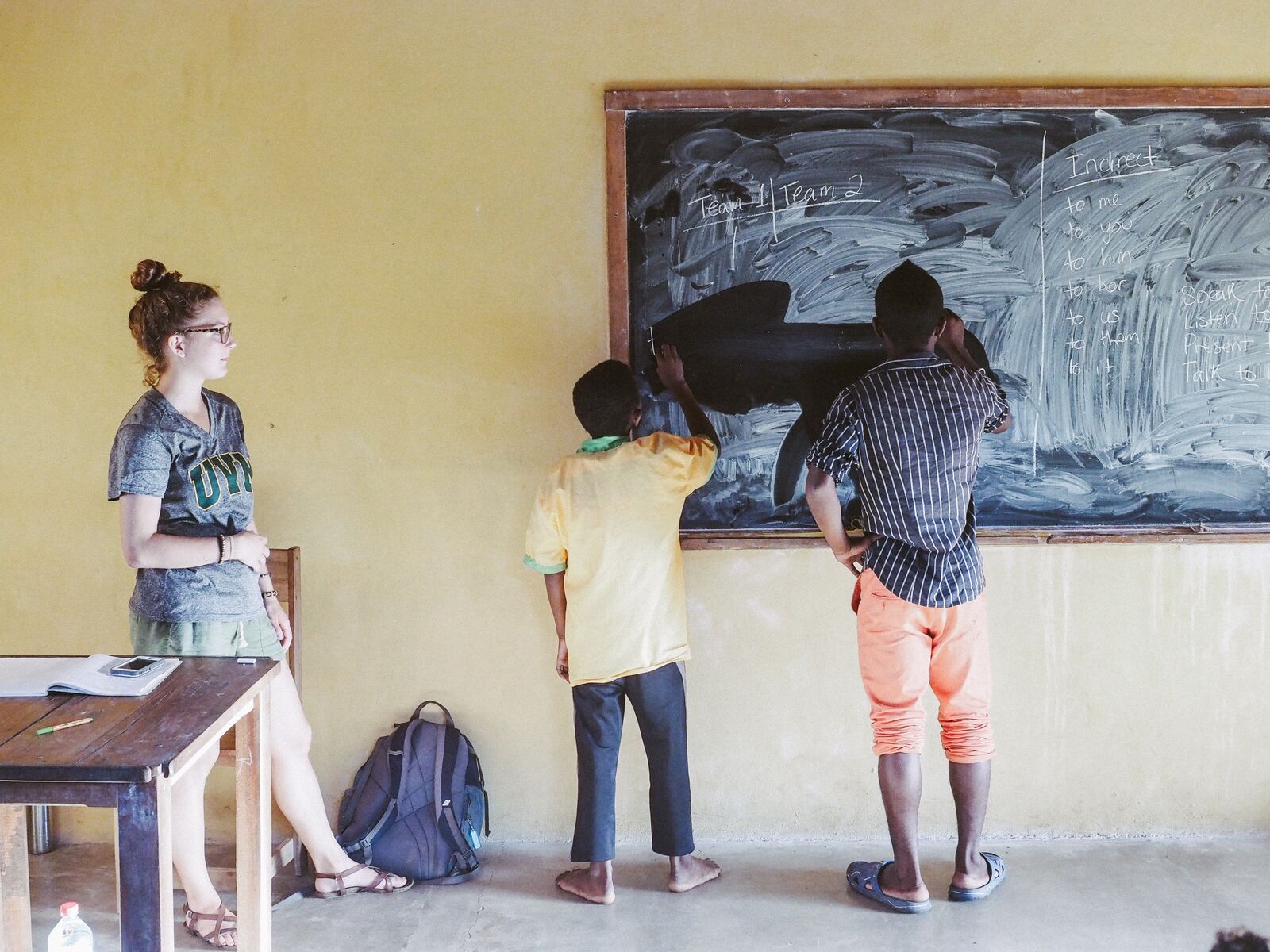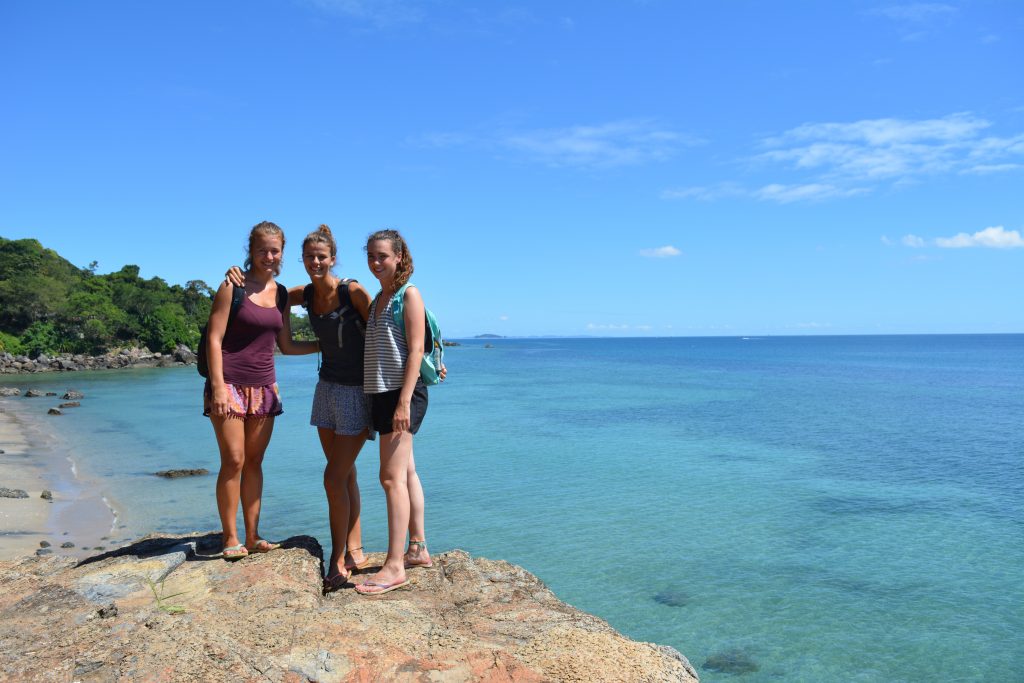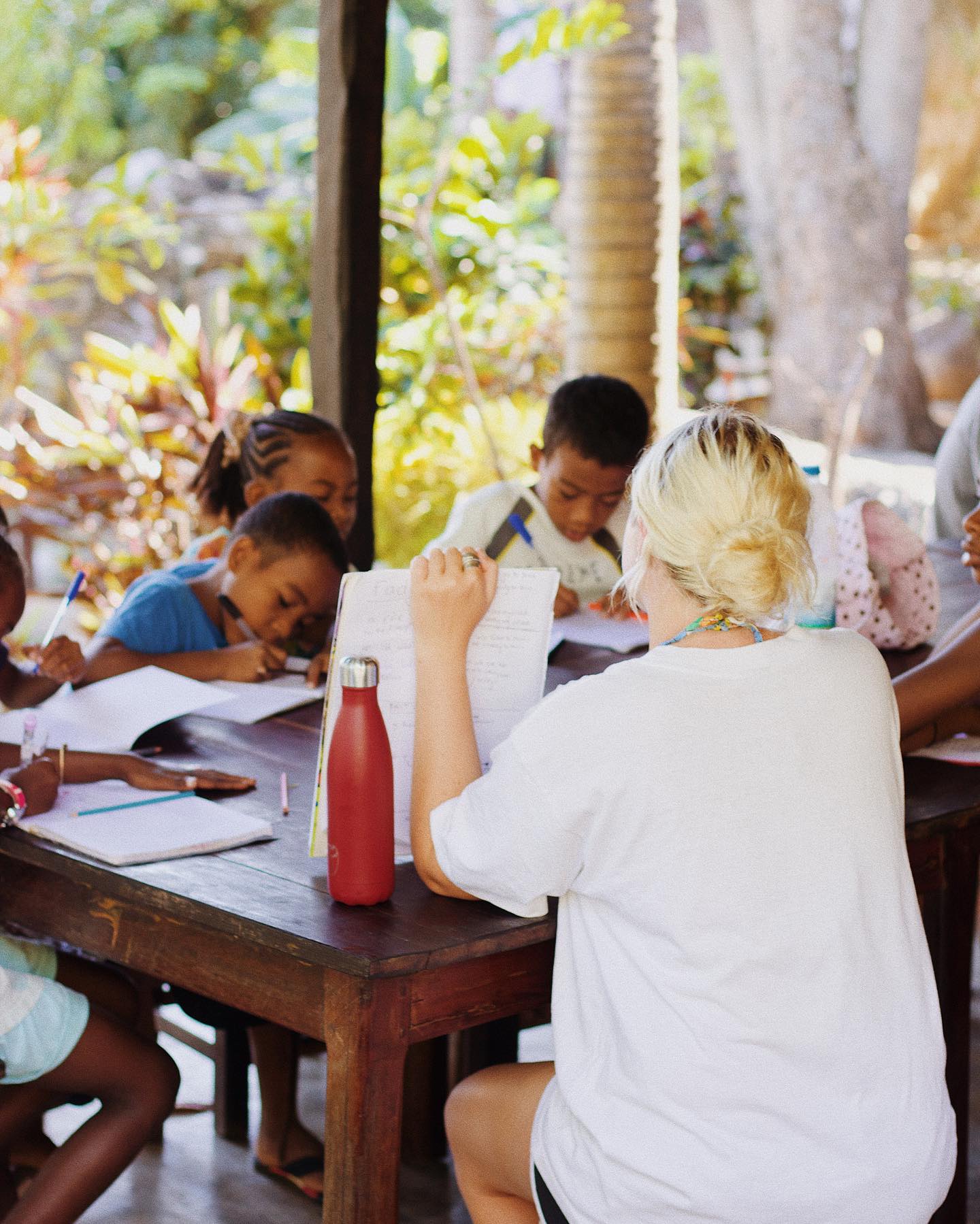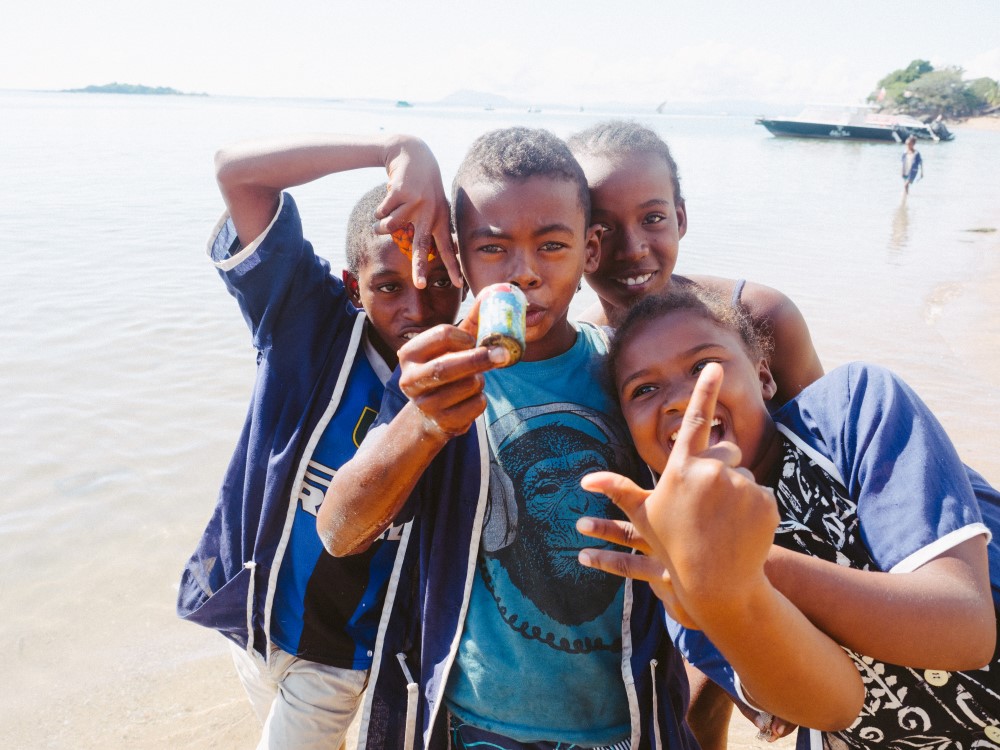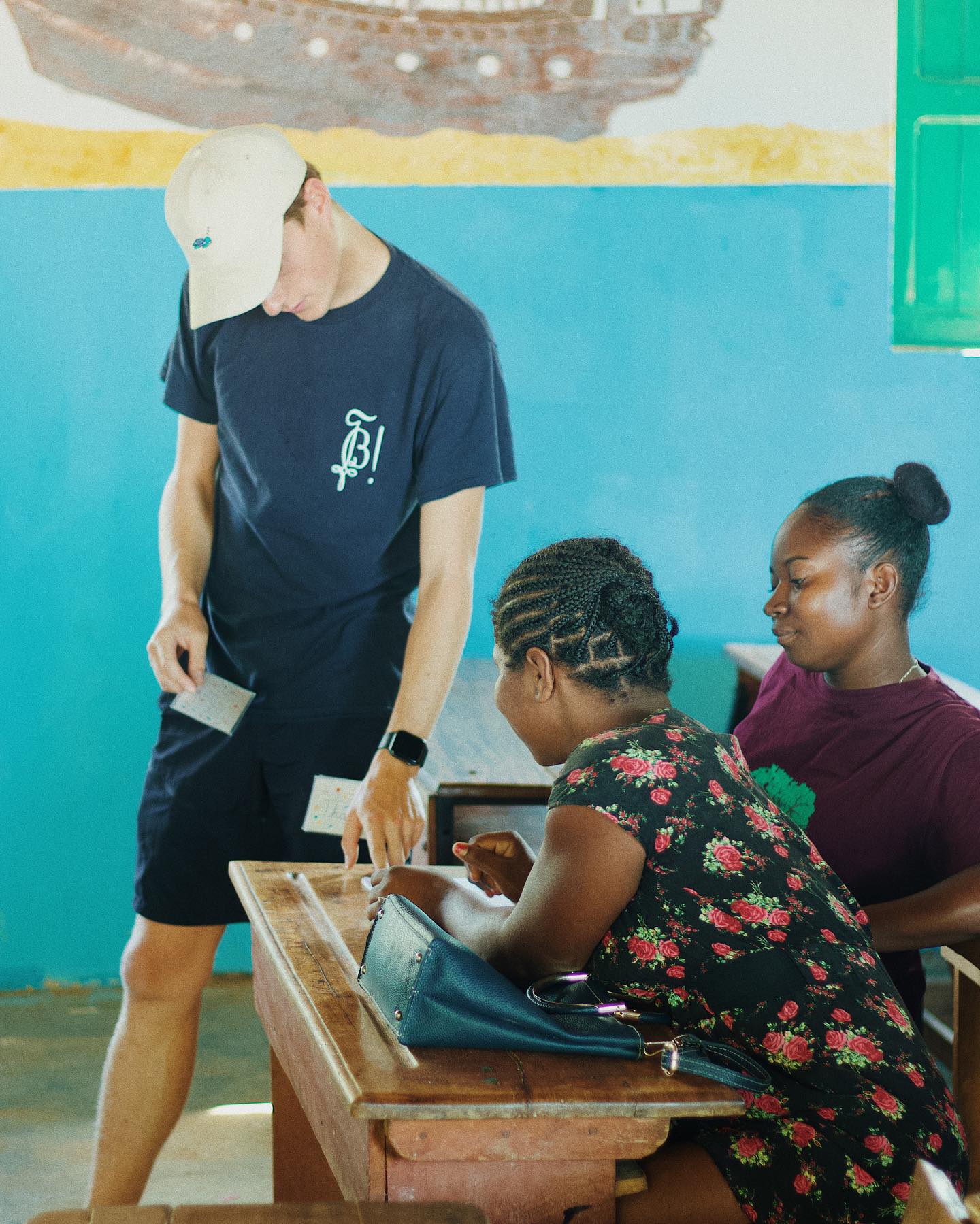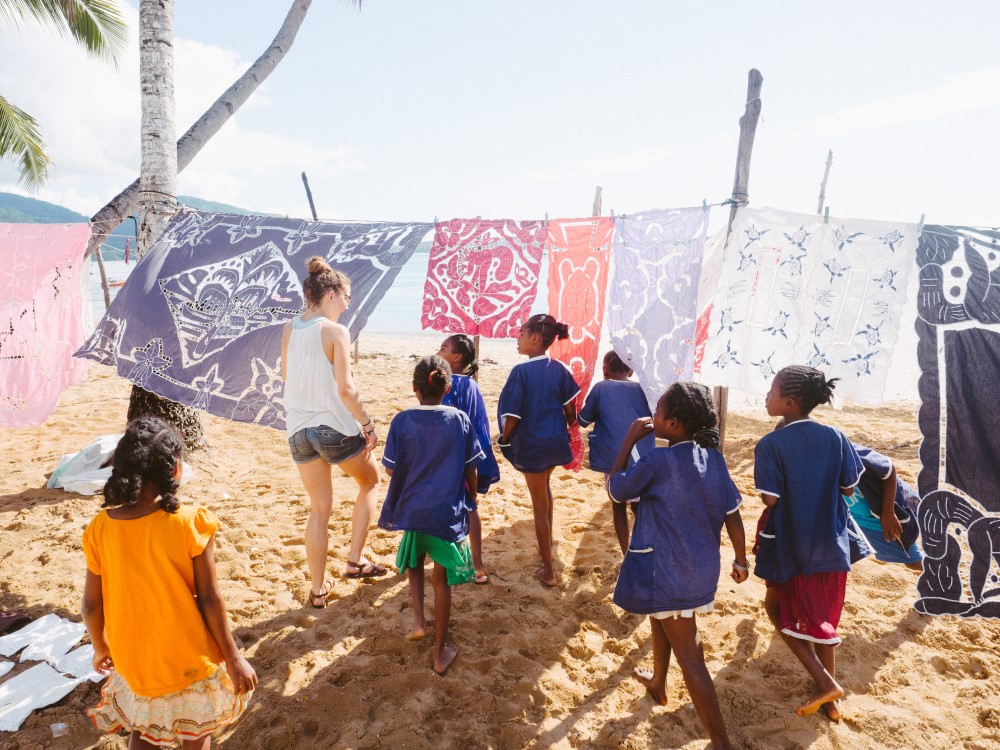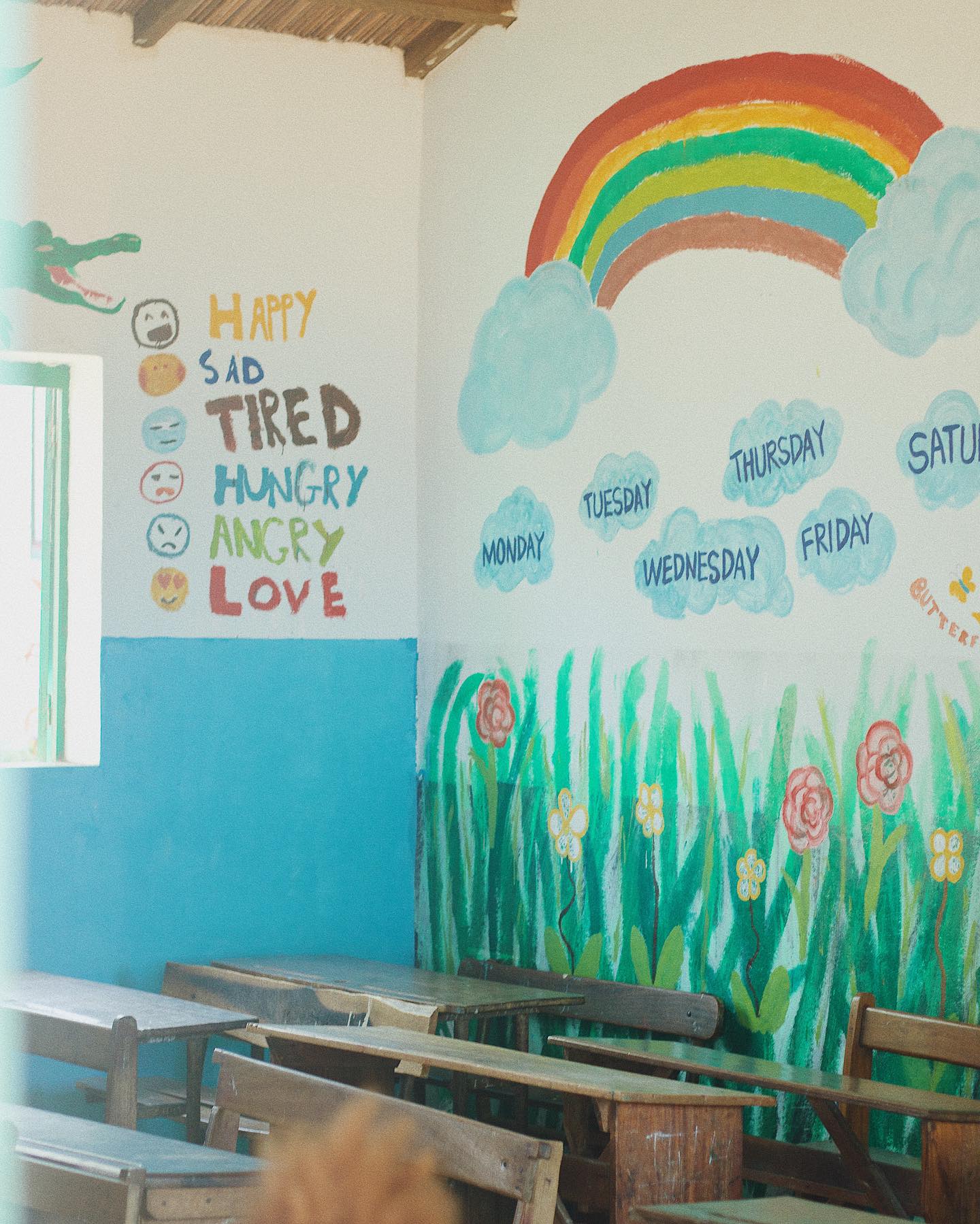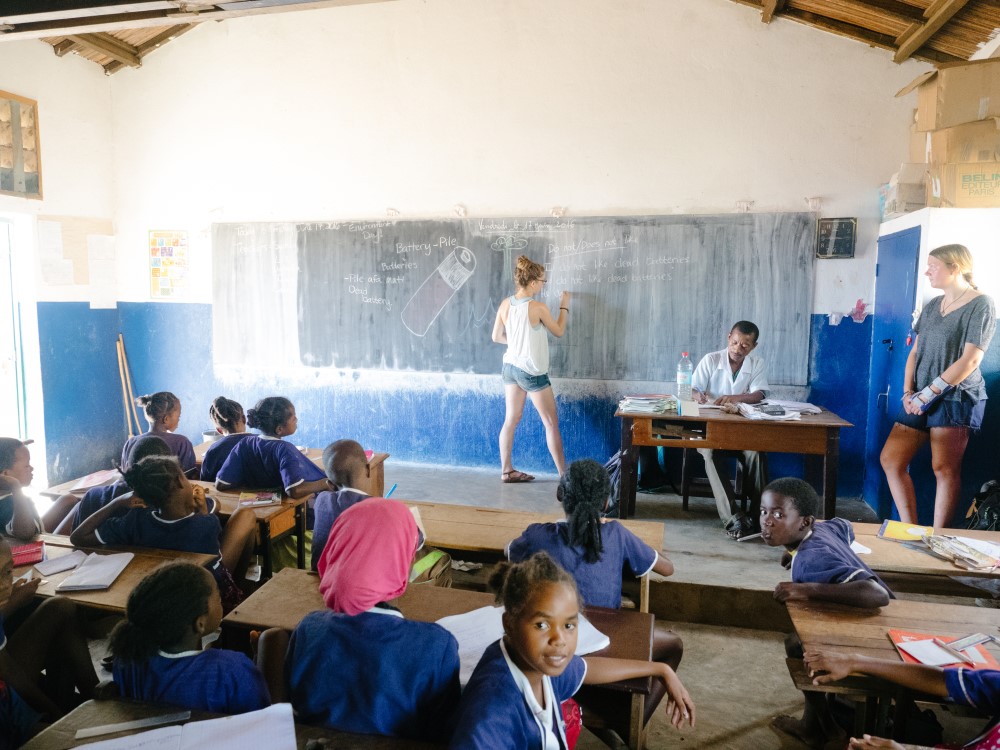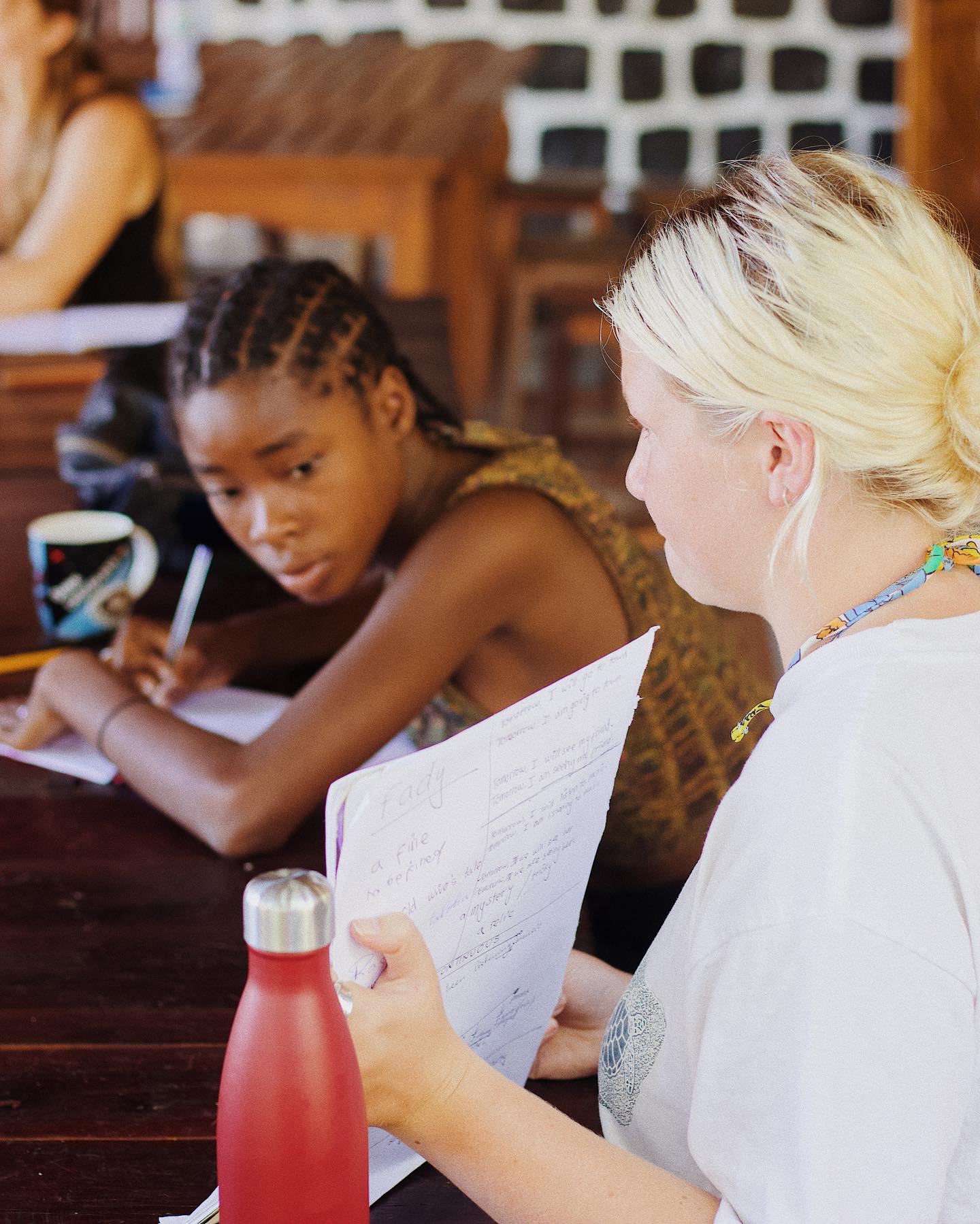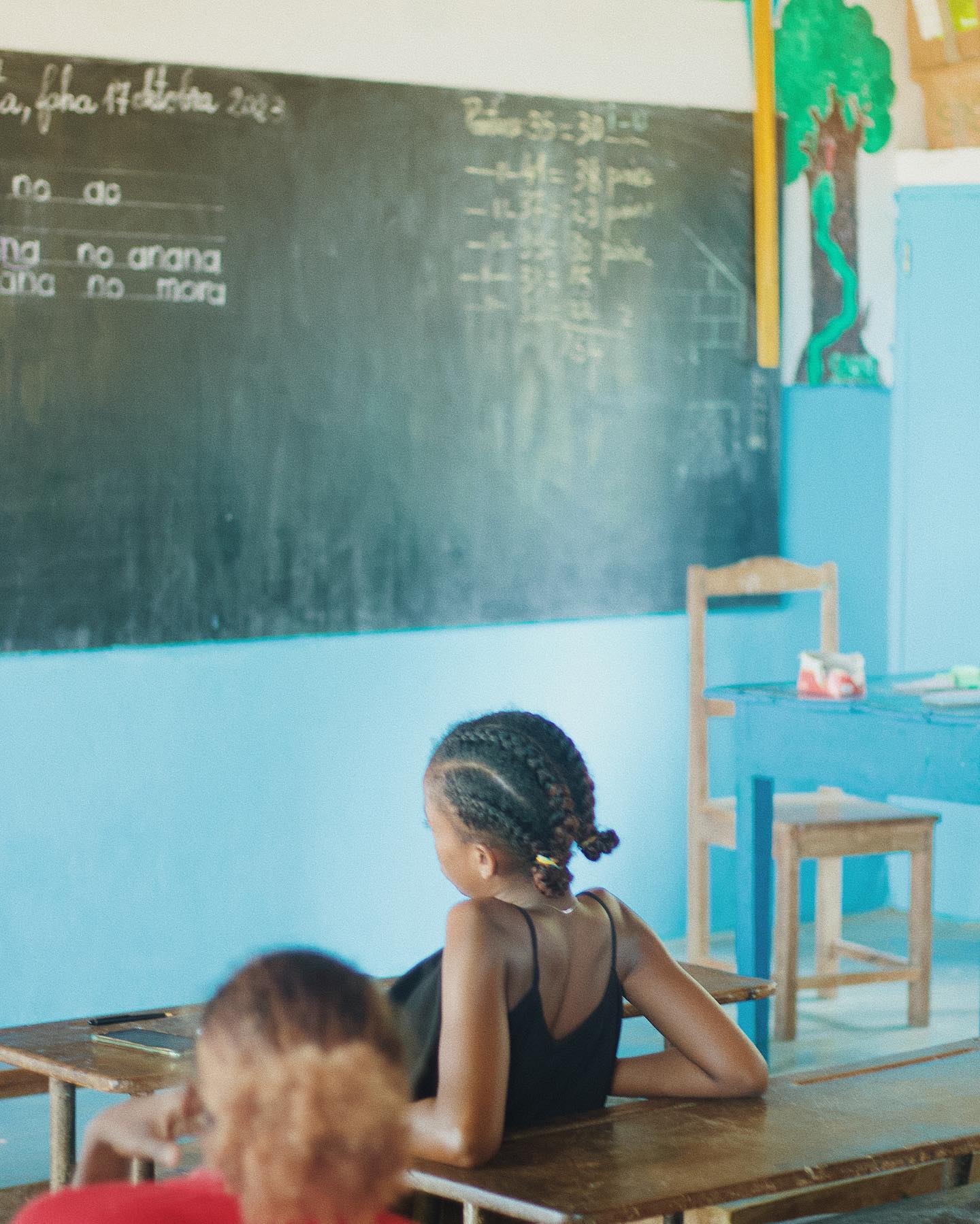Support the community
by teaching in Madagascar
Teach people of all ages in local villages
-
Duration
1-12 Weeks -
Minimum age
17+ -
Start dates
1st & 3rd Sunday -
From
£380
-
Duration
1-12 Weeks -
Minimum age
17+ -
Start dates
1st & 3rd Sunday -
From
£380
Madagascar Teaching Volunteers
Quicklinks
Enjoy island life and immerse yourself in Malagasy culture as you teach English throughout the local community in Madagascar. With the opportunity to teach people of all ages in a variety of different settings this is a great chance to improve your teaching skills and have a real impact on the community, creating a truly rewarding and unforgettable experience.
With no qualifications needed and basic training provided on arrival, anyone with a good understanding of the English language is welcome to volunteer! Whilst working in different locations around the stunning islands of Nosy Be and Nosy Komba, this is a great opportunity to experience Madagascar and provide a valuable resource to the islands. You will spend your days out and about in the local villages, getting to know the local people and delivering classes to both children and adults.
It won’t be all work though and you will have plenty of time to go snorkeling in search of sea turtles, hike through the forests in search of lemurs, go whale watching or just relax at the idyllic accommodation. Built into the steep, rocky slopes of Nosy Komba, your home in Madagascar overlooks the ocean and coral reef below. Surrounded by lush green forests and just a stone’s throw away from a picturesque white sandy beach, this really is paradise.
Background to the teaching programme
With tourism contributing significantly to the local economies of Nosy Komba and Nosy Be, there is a great demand among the island communities to learn English in order to enhance their future job prospects within the local area. By developing their English, the local communities are able to widen their range of employment opportunities and grow in their current careers.
Despite the growing number of tourists in Madagascar, opportunities to learn English from native speakers are rare, which is where you can help!
By teaching English in Madagascar, you will have the opportunity to help grow the local community and economy. Children who learn English in school may have a wider variety of job opportunities, higher pay or access to further education later in life. Equally, adults with a higher level of English will be able to communicate better with tourists, volunteers and visitors as well as widen their job prospects.
On top of this Madagascar is also home to many Marine Conservation organisations including the Oceanographic Research Institute on Nosy Be. By developing the staff’s English skills you will help them to communicate their knowledge and scientific research findings around the world.
This is a multi-faceted role with the opportunity to make a real difference to many areas within the community.
Where will I be volunteering?
Established in 2013, the local team is a non-profit, government approved organisation that was set up to assist the Madagascar Department of Education with their research and conservation of the environment around the island. The team undertakes environmental research, community development and provides education to the local communities.
As a teaching volunteer, you will spend time in the community, getting to know the locals as well as delivering lessons in village schools all around the islands and at the Oceanographic Research Institute on Nosy Be.
Team members from each department are encouraged to work together and learn from one another. Throughout your programme you will be paired with an MRCI staff member which is a great opportunity to get to know the local team on camp and to pick up some Malagasy!
The camp and accommodation is based on Nosy Komba (also known as Lemur Island or Nosy Ambariovato), which is situated within the Mozambique Channel. The island is surrounded by white sand beaches, mangroves and seagrass beds leading to a fringing coral reef.
What is my role?
Your main role while in Madagascar will be to deliver English grammar and Conversational English lessons around the community. You will be delivering classes in a school setting as well as in work places and more informal settings around the island. You will be expected to plan lessons beforehand, with the help and support of your programme coordinator.
Children’s Classes - Throughout term time you will teach in several schools on Nosy Be and Nosy Komba. Children are aged from 4-12 years and are full of energy! In the school holidays you will help teach a mixture of English and science-based lessons.You will need to plan fun and interactive lessons, keeping students engaged with educational games and activities.
Teenager Classes - Teenage classes run during term time and are often large classes of eager students aged 11-15.
Adult Classes - Smaller adult classes of 5-15 students run all year round. Classes vary in ability from complete beginners to advanced levels of English. Volunteers are encouraged to attend social events such as picnics and football tournaments where students and teachers can converse and learn in a more relaxed environment.
You will occasionally be asked to liaise with volunteers from the marine and forest programmes to arrange mini lectures for adult classes. These more challenging lectures aim to teach students about current research topics and the environmental work of the institute, whilst also developing their English.
Local Staff - Whilst on your teaching programme you will also be paired up with staff members from the local team to give them one-to-one English lessons. This provides a sociable experience and is another chance to work on your Malagasy!
Your presence in the schools and community will be vital in helping to improve conversational English skills. Adults especially may just want to practice speaking more fluently and spend time with you. As a volunteer you will spend your days out and about in the local villages, getting to know the local people. You will have many opportunities to chat with the locals which is a great way to immerse yourself in the Malagasy culture and learn about their way of life.
What will a typical day look like?
You will generally be volunteering from Monday to Friday with each day broken into morning and afternoon activities. After dinner each day, everyone meets to go through the tasks for the following day.
The schedule will vary greatly and may depend on the project needs and other external factors.
Please find below a sample schedule -
05:00-07:00 Breakfast on camp prepared by our in-house cooks
07:00-08:00 Start of morning activities on project
12:00 Lunch on camp prepared by our in-house cooks
14:00 Start of afternoon activities on project
16:00-17:00 Volunteer activities for the day usually conclude
18:00 Dinner on camp prepared by our in-house cooks
18:45 Board Briefing to go over activities for the following day
You will take a scenic walk through the forest trails to teach in village schools on Nosy Komba and take a 45 minute boat ride to teach in Nosy Be. Other classes will be delivered on camp in Nosy Komba and out in the community.
You will have several hours of free time throughout the day and in the evening where you are more than welcome to relax on the beach, go snorkeling in search of turtles, enjoy the views from the dive deck or socialise at the accommodation playing games.
There are no volunteering activities planned for the weekends and this is your perfect chance to head off and explore more of Nosy Komba and the surrounding islands. There are so many things you can see and do including walking the narrow stretch of beach at Nosy Iranja, go lemur spotting at Lokobe National Park, climb Mont Passot to enjoy the 360 degree views, hop on a boat and go whale watching or simply relax and enjoy your surroundings.
Where will I be staying?
Situated between mainland Madagascar and the large island of Nosy Be, you will staying on the picturesque island of Nosy Komba.This volcanic island offers a unique moment of peace and tranquility as there are no roads or cars on this island.
Our eco-friendly, multi level accommodation boasts great views of the Indian ocean that extends all the way to Lokobe Forest Reserve on Nosy Be. You will be staying in one of several locally built bungalows that are nestled within vibrant gardens. Volunteers can expect to share a hut with four to six other volunteers in wooden bunkbeds.
You can make the most of island life by relaxing on the large dive deck that is complete with hammocks, bean bags and benches, providing the perfect spot to enjoy the sunset and unwind after a day of volunteering.
Outside of volunteering you can go lemur spotting in the surrounding forests or make the short walk to a picturesque beach to top up your tan or snorkel in the crystal clear waters. If you would like to venture further afield Nosy be is just a 45 minute ferry away.
Other things to consider
Walking distances - To reach the local villages you will often be required to walk along forest trails, which have rocky and uneven terrain or climb over boulders and rocks. It is important to have a relaxed, flexible attitude and bring some good walking shoes!

